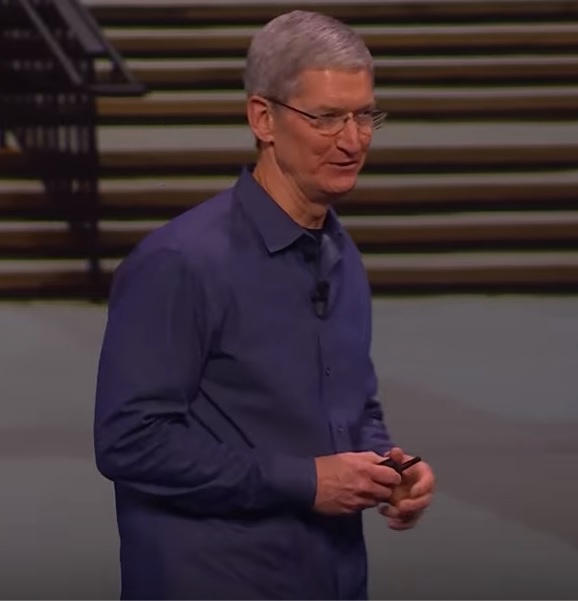The FBI’s attempt to force Apple to bypass the encryption of a dead San Bernadino terrorist’s iPhone may set an ominous precedent for encryption technologies including the blockchain.

Apple CEO Tim Cook has opposed the US Government’s attempt to order the Silicon Valley giant to create new software version that will essentially circumvents the iPhone’s security features with a “back door”.
In a letter to customers published on Apple’s website, Cook states:
“The United States government has demanded that Apple take an unprecedented step which threatens the security of our customers. We oppose this order, which has implications far beyond the legal case at hand.”
Cook explains what the FBI wants and why it is dangerous for Apple’s customers:
“FBI wants us to make a new version of the iPhone operating system, circumventing several important security features, and install it on an iPhone recovered during the investigation. In the wrong hands, this software — which does not exist today — would have the potential to unlock any iPhone in someone’s physical possession”
As they rely heavily on cryptography, technology companies operating in the cryptocurrency and blockchain ecosystems are concerned about the precedent that the US Government is setting. Some observers are asking whether it will existentially threaten blockchain technology.
Preston Byrne, COO and co-founder of blockchain startup Eris Industries, told partner website Bitlegal:
“Disaster waiting to happen for firms that specialise in cryptosystems if it’s allowed to stand …it would basically make it impossible to build useful blockchain software”.
Eris has already been something of a champion for the encryption rights of businesses and individuals, last year calling for opposition to the UK Government’s “Snooper’s Charter”.
Paul Puey, CEO of bitcoin wallet provider Airtbitz, stated:
Apple CEO Tim Cook recently took a brave stand for encryption against the orders of state agencies that demanded his company build something that could endanger the entire mobile security landscape.
I stand with him and so does the rest of the Airbitz team. Building backdoors makes everyone more susceptible to attacks from criminals and you can’t control who has access to it. Considering the costly security mishaps of the FBI and NSA in the past, it’s clear they can’t be trusted with your sensitive, confidential information.
There is a serious question as to the legality of authorities ordering companies to create software that essentially hacks their own devices or those of their customers. Cook highlights:
“Rather than asking for legislative action through Congress, the FBI is proposing an unprecedented use of the All Writs Act of 1789 to justify an expansion of its authority.”
The All Writs Act has on occasion been evoked by authorities or judges “when there isn’t already a law or statute that deals with a specific issue.” This is also not the first time that authorities have used the 227 year old to force Apple to unlock an iPhone. In October 2014, a US Attorney called upon the Oakland Division of the US District Court to order Apple to unlock an iPhone, according to documents acquired by Arts Technica.
Nonetheless, it is still rare and has some legal experts wondering about the lengths the government is willing to go to crack open encrypted devices in the name of counter-terrorism.





